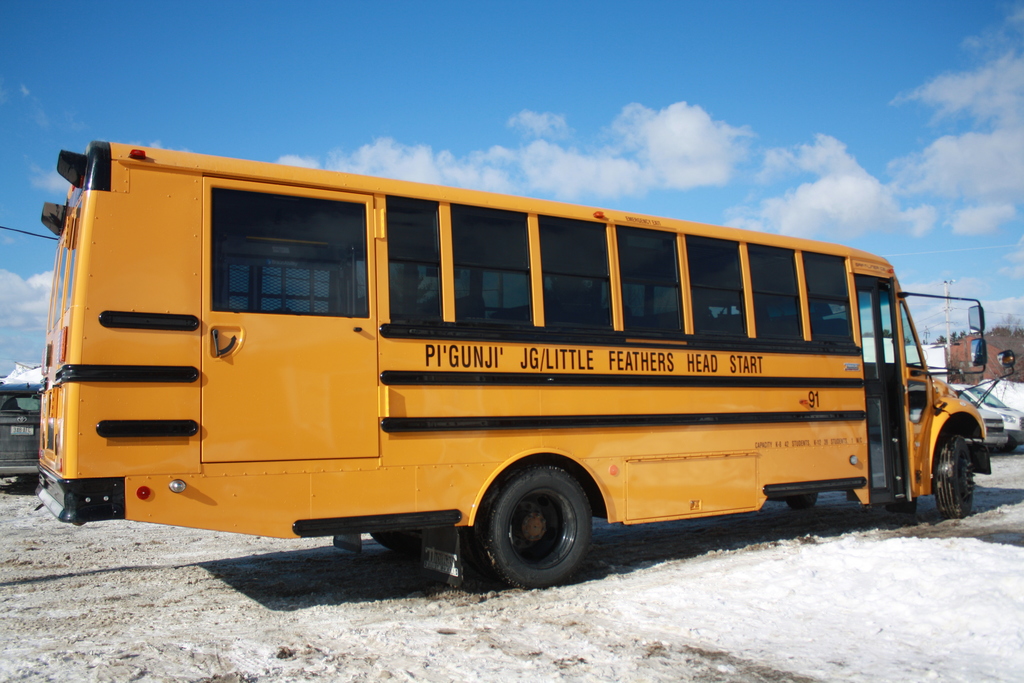
PRESQUE ISLE, Maine — Little Feathers Head Start, a program of the Aroostook Band of Micmacs, recently purchased a brand new bus thanks to grant funding of $93,000.
The funding came from the U.S. Department of Health and Human Services Administration for Children and Families’ Office of Head Start. Little Feathers program coordinator Bethann Basso said that the new bus has replaced a 2012 model that had begun needing costly repairs due to aging.
With the grant funding, Little Feathers was able to work with Kennebunk-based company W.C. Cressey and Son Inc. to design a bus that fits the needs of students and staff members. The new bus features a wheelchair lift and ramp, tinted windows, a storage unit below the seats and seating that allows for multiple forms of adjustments to eliminate the need for car seats.
Basso said that Little Feathers has had the bus for three weeks now and they have seen many improvements over its former bus.
“We go to [Northern Maine Community College’s] gym every week, so having the extra storage allows us to store all our equipment and keep them out of the aisles,” Basso said. “Each child has their own marked seat now that’s adjusted to meet their needs.”
The DHHS Office of Head Start has also awarded Little Feathers five-year funding of $346,374 per year that will last through 2025. Every five years, Little Feathers applies for DHHS funding that covers 100 percent of program expenses, including educational curriculum, staff wages and benefits and cultural training.
Little Feathers Head Start began in 1995, four years after the Micmacs received federal recognition as a tribe. The curriculum serves both native and non-native children and focuses on preservation of Micmac culture, language and heritage, as well as the social, emotional and behavioral skills children needed to succeed in kindergarten.
Funding allows Little Feathers to serve 20 children ages 3-5. Basso noted many long-term goals for the program — including further involving parents in their children’s education and activities — and ensuring that all generations of families succeed as a result.
“Being in Head Start helps our children have a sense of family within our community, and allows many parents to work because their children have a safe place to learn,” Basso said.







